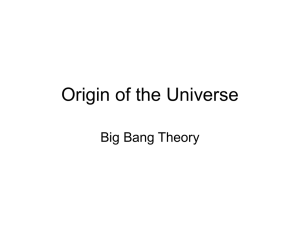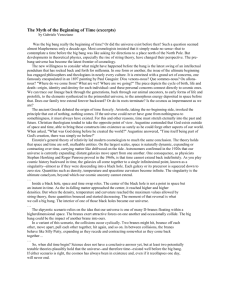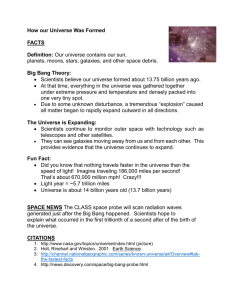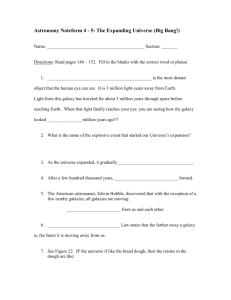Through research, compile a list of evidence supporting the big
advertisement
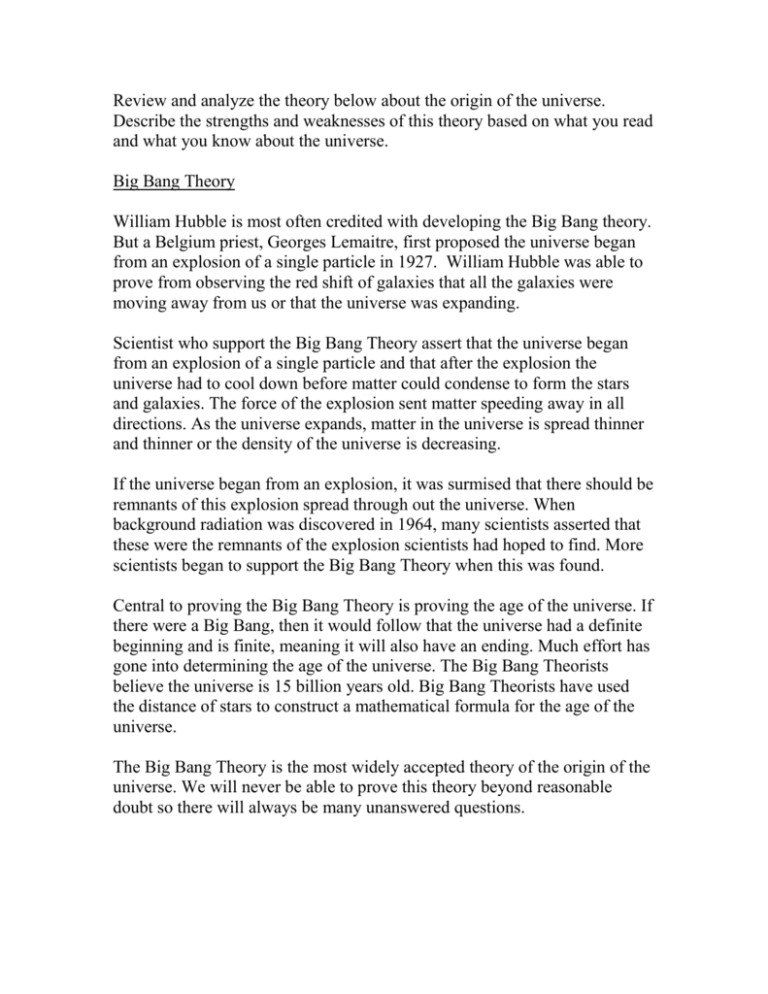
Review and analyze the theory below about the origin of the universe. Describe the strengths and weaknesses of this theory based on what you read and what you know about the universe. Big Bang Theory William Hubble is most often credited with developing the Big Bang theory. But a Belgium priest, Georges Lemaitre, first proposed the universe began from an explosion of a single particle in 1927. William Hubble was able to prove from observing the red shift of galaxies that all the galaxies were moving away from us or that the universe was expanding. Scientist who support the Big Bang Theory assert that the universe began from an explosion of a single particle and that after the explosion the universe had to cool down before matter could condense to form the stars and galaxies. The force of the explosion sent matter speeding away in all directions. As the universe expands, matter in the universe is spread thinner and thinner or the density of the universe is decreasing. If the universe began from an explosion, it was surmised that there should be remnants of this explosion spread through out the universe. When background radiation was discovered in 1964, many scientists asserted that these were the remnants of the explosion scientists had hoped to find. More scientists began to support the Big Bang Theory when this was found. Central to proving the Big Bang Theory is proving the age of the universe. If there were a Big Bang, then it would follow that the universe had a definite beginning and is finite, meaning it will also have an ending. Much effort has gone into determining the age of the universe. The Big Bang Theorists believe the universe is 15 billion years old. Big Bang Theorists have used the distance of stars to construct a mathematical formula for the age of the universe. The Big Bang Theory is the most widely accepted theory of the origin of the universe. We will never be able to prove this theory beyond reasonable doubt so there will always be many unanswered questions.

